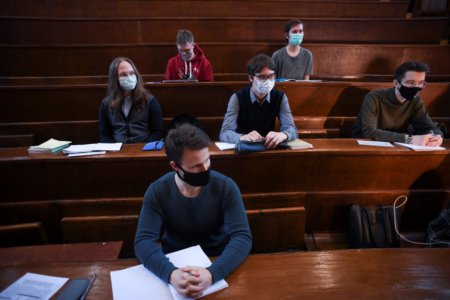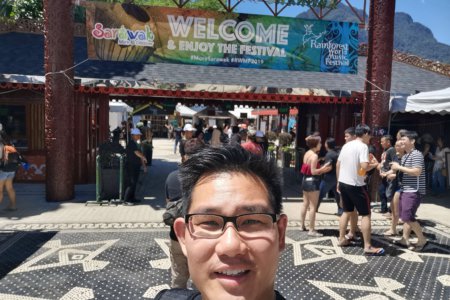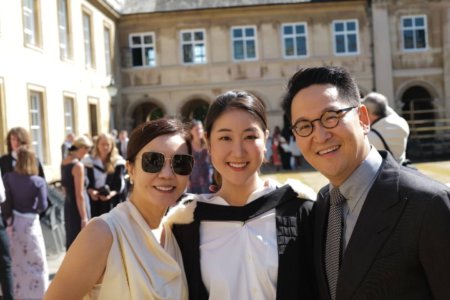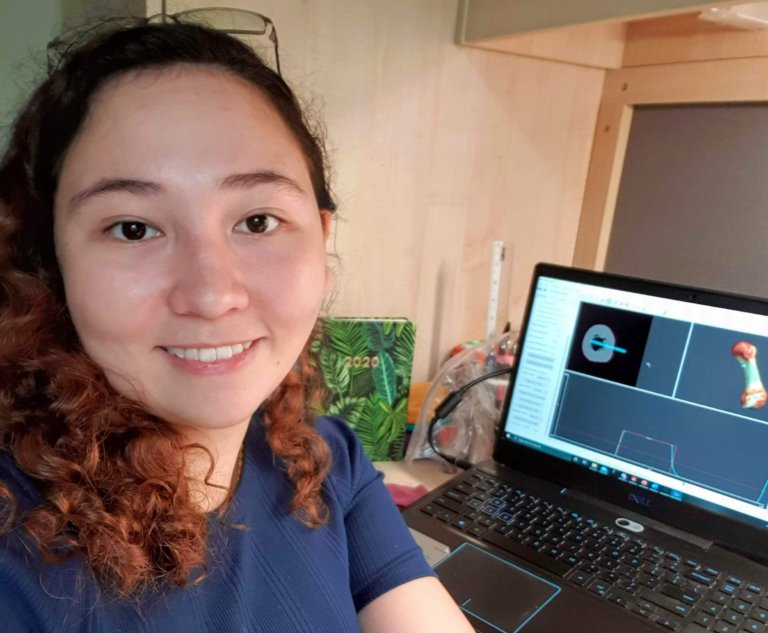
It doesn’t get more multidisciplinary than biological anthropology. The study of how we, our extinct ancestors and related non-human primates evolve and behave is the focus of Nadine Steer’s Master of Science at the University of Kent.
Malaysian-born Steer chose this subject as she was fascinated by what can be inferred from different skeletal elements, behavioural studies and so forth. Her goal is to uncover the story of how we came to be and with a GREAT Scholarship, a programme jointly funded by the British Council, the GREAT Britain Campaign and other participating UK higher education institutions, she now gets to work towards this.
Below we speak to Steer about her programme, the University of Kent and what it’s like to live in the UK:
Why did you choose to pursue this course at the University of Kent and in the UK?
I chose the UK because of the study experience that’s been advertised, and so far it’s not been disappointing. The University of Kent has a unique mix of biological anthropologists from all backgrounds and specialties.
This is a great opportunity to partake in different modules and find things that we’re truly interested in, alongside incorporating different aspects into other modules, or even in your daily life. I love the variety that the course provides in module choices all the way from human evolution and primatology to forensic anthropology, allowing us to customise our own learning journey.
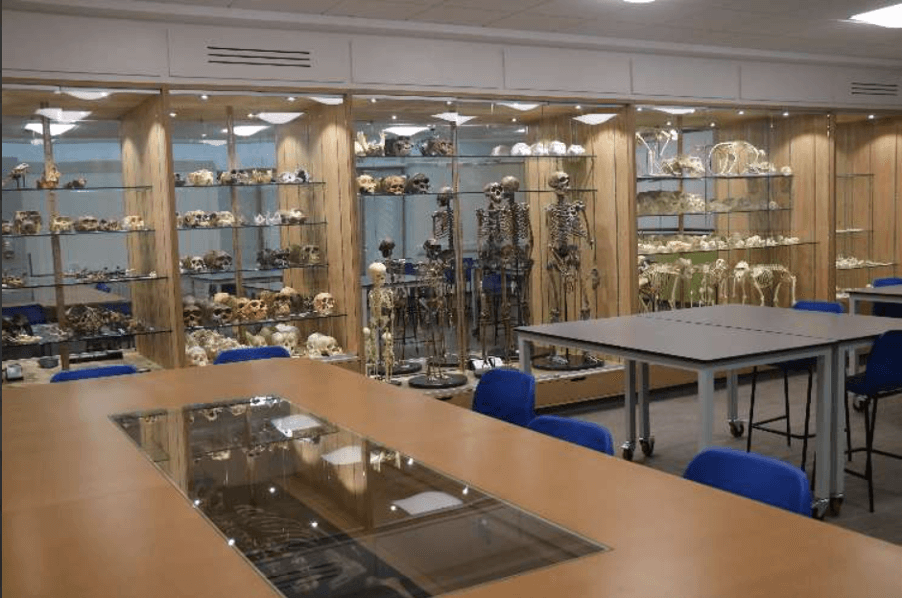
Fossil hominin and primate casts at teaching lab at the University of Kent. Source: University of Kent
To add to that, accessing the many facilities helps with the facilitation of the more practical aspects of my course. The different laboratories increased my learning experience for different topics and made it very enjoyable.
Do you think it would have made a difference if you studied at a local institution?
I think there would be a slight difference in teaching styles, but I can’t say with certainty. There are also varied research interests between the institutions which are not aligned with my personal preference. However, this does not discount the quality of teaching in either country because my course is a rather niche one which is not prevalent in local institutions.
What has been your most memorable class so far?
It’s hard to choose just one, but I think it would have to be the time we were given a chance to lead seminars. This gave me a whole new learning perspective and I enjoyed trying to convey ideas in a digestible and different manner. This is the opposite of what I was used to, posing questions in a traditional learning format.

The possibility of travelling around the UK is also a great advantage. Source: Nadine Steer
Do you have any fond memories with teachers at your uni that have stood out for you?
The lecturers have been absolutely amazing, constantly encouraging and challenging you to do your best. Many are open to ideas, interpretations, and they don’t discourage creative thinking.
Moreover, there is also an emphasis on critical thinking, rather than blindly memorising and accepting what is written as facts which I find very valuable. Kudos to the teachers who adapt to the recent changes in teaching style while maintaining engagement with students.
They’ve provided academic support by answering any uncertainties and providing constructive feedback so we can progress academically. Some teachers also ensure general wellbeing by checking in periodically, which is kind of them.
Do you get to apply the theories you gained in lecture halls and classrooms to the real world?
The practical experiences in my course would probably be illegal under normal circumstances because most things are based on skeletal material and casts. It’s best not to practise in a regular real-world setting.
The theoretical aspects, on the other hand, are quite applicable when looking at my friends’ behaviours and decision-making processes. As it is the study of humans, looking at the possible evolutionary theories behind these behaviours and seeing them applied in real time is truly fascinating.
What skills have you gained thus far?
Thinking outside the box and online mediated presentations necessary for my course. I have learnt quite a lot in the short time I have been here and can only hope to continue growing.

Steer’s campus covered in snow, a complete contrast in weather compared to her home country. Source: Nadine Steer
What advice do you have for international students looking to study abroad in the UK?
Do a little research about the country and area which you plan to live in. This is really helpful. Find out about the landmarks to help orientate you when you first arrive — it will save you loads of time. Lastly, prepare for an exciting experience like nothing you’ve had before!
Do you plan to progress into further studies after this degree?
I hope to further my studies in this field at a later point in my life. I plan on hopefully gaining more practical experiences, but will take it day-by-day as my life is in constant change.
What’s one thing you miss from home and how do you substitute it?
It would have to be the food! There is no real substitute for it, but I attempt to cook some of my favourite dishes from home sometimes. A trip to the Asian grocers is also quite a treat, especially when I find some of the snacks from my childhood (which I took for granted).








